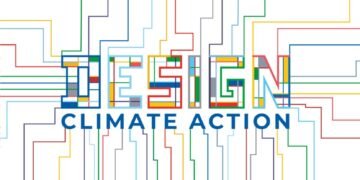Many aspects of modern finances are taken for granted in an equally modern world. If you are starting out in the big, scary world of doing things with your money (or saving, as the case may be), finding actual answers to quite simple questions can be an ordeal. Terminology is usually built for those people who have some basis of knowledge in finances. What if, though, you have none?
Answering simple questions is something that we should be doing more often as a society since a lot of the post-pandemic world struggles with some of the things everyone took for granted. Do not look down on anyone for asking a dumb question, it could be they did not know it by necessity alone. So, let us take the first step in that field of acceptance and answer some very simple questions when it comes to loans, consumer or otherwise.
What is a Loan?
This might seem like a question that can be solved with a very quick search online, but it is still worth answering. Student loans get a lot of publicity online, and the anger created by their use is very real, so it is worth considering what exactly everyone is frothing at the mouth over. A loan is, very simply, taking a large chunk of money and promising to pay it back over time, with a bit added on top for the benefit of the loan giver. This has its nuances, of course, and let us look over those now.
The money that was given by a loan, or taken by the person who applies for it, is usually for something specific. This is not always true, since credit card debt technically qualifies as an ongoing loan, but for the most part, people giving loans want the maximum possible security for their investment. So, from the perspective of a banker, it is best if the payment you are giving them is for something specific and tangible, like a car, home, or college education. Terminology for loans can get intimidating, so if you want a more thorough approach, click here for a good glossary.
What is Credit Score?
It might seem strange for someone just entering the huge world of finances, but loans are commonplace nowadays. They are financially disadvantageous for the people taking them out, but the fact that the money is instant can have serious advantages for buyers scoping out big purchases. Or, sometimes as the case may be, just needing a bit of extra money to get by, as is the case with credit cards makes them a necessity for people with low income.
When you take out a ton of loans, banks will log this and track it using something called a credit score. This is, put simply, a running total of the loans you have paid back, how fast you did them, how reliable you were and are, and whether someone who does not know you can reasonably trust you to make occasional payments. It is a lot of information summed up in a number that most people have. “Building credit” is a term used for taking out loans just to start a precedent that, yes, you will pay back the person giving the loan on time, consistently, and without any fuss.
Assigning a trustworthiness score might seem a bit off but let us consider some other factors. Defaulting is a term for not finishing the loan according to the contract. In all cases, it means a big financial mess that both parties want to avoid, but for the borrower, it can mean seizure of wages, assets (cars, homes, etc.), and payment of fees that dig them even deeper into the hole of debt. Loan-givers want to avoid this, so they assign a score to give an estimate of how much of a risk they are actually taking.
The Basics of Collateral
Collateral is a near-universal practice for people giving loans to demand. It is, essentially, something that the loan-taker is willing to give should they default. The term for it is security since it is essentially a backup option so that the person giving out the money has something to fall back on should the debt not be repaid. Remember, debt is fundamentally an investment, so collateral is a little extra on top to make said investment just a bit sweeter for the loan-giver, just in case you are not able to make payments.
Let us say, for instance, you are taking out a lån with https://dbrs.dk and end up defaulting. A lot of the time, if the person making payments is communicative, there are programs and negotiation tactics available for individuals and banks/loan agencies for giving a bit more time. Keeping up a good credit score can, in many cases, simply mean communicating financial hardship, but should you default, the collateral is liable to be seized. Everyone wants to avoid this since it means a lot of paperwork for one end and a seized house or car for the other.
For home loans, the collateral is often the house. For car finance Brisbane, the collateral for the loan is technically the car, but most agencies will prefer to negotiate since car value goes down quickly after use. But the idea here is clear: fail to pay the loan and whatever you signed off on being collateral is at risk.
Principal and Interest
For the practical necessities of daily finances, the principal is the amount left on the loan without interest taken into account. It is basically a running tally of how much is left for you to pay off, and though not particularly useful monthly since it does not consider interest, it is fantastic for measuring progress towards the sweet final payoff. Interest is a percentage added on top of normal payments for the purposes of the bank or other institution making a profit.
Loans are mutually beneficial, and a necessity for making any large purchase in a modern context, but interest can seem unfair and frustrating on a practical level. Remember to keep yourself grounded in reality though: the loan was an investment and interest makes that possible. Interest has a lot of rules attached, like having a maximum percentage of applicability for low-income families, but its fundamentals are quite simple.
Down payments on Homes
Though this has a real basis in the value of a home, a down payment is in essence the starting payment on a house. This is normally an exceptionally hefty sum for the property, intended to be the first benchmark for a successful home loan. What it means, in theory, is that this is the difference between the loan amount and the actual price of that home, though in practice this can be misleading since a lot of loans do not want to pay for the full thing at once.
A down payment is a starting point, giving banks and the home-seller a good idea that you will be reliable in your payments. If you have the money for a down payment, so the logic goes, you probably have the means to pay off the rest of the house. If you want to read more on this, click this link: https://www.investopedia.com/mortgage/mortgage-guide/down-payment/ for a great further summary of this financial practice. But these are all technicalities, and the real actionable effects of this terminology can be a shock to first-time home buyers.
In general, loans can be a very tricky thing to get into. You may seem intimidated by the terms, and even worse by the numbers thrown at you very quickly. The key to knowing finances is to take it one step at a time, take a deep breath, and start reading. They say even the longest journeys need to start somewhere, and though years ago may have been the best time to start, the second-best time is right now.










